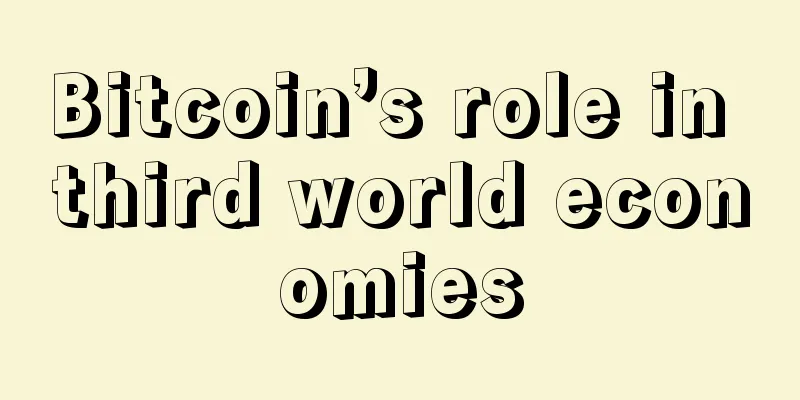Bitcoin’s role in third world economies

|
Bitcoin has long been considered a truly global currency, and we are discussing its potential uses and how it can help the world economy develop better. Until now, Bitcoin’s use cases have involved being used in developing countries to send remittances and provide banking services to unbanked areas during peacetime. The world is no longer harmonious with the turbulent situation in Europe and the Middle East. Conflicts against terrorist organizations such as ISIS are common in Ukraine, Yemen, Syria and Iraq. These war-torn countries have lost their economic activities, and people here often rely on aid from various countries and international organizations to survive. Banking institutions in these areas have closed or have no plans to reopen. In such dire circumstances, alternative financial services seem to be able to fill the gap. Kenya is a good example of alternative financial services that are a natural fit for the big banks: M-Pesa, a service that allows people to send and receive money using their mobile phones. Now that mobile phone penetration is over 80%, people can use the service to buy almost anything. Bitcoin players, such as BitPesa, have designed their services to work with M-Pesa. Somalia, an East African country that has been mired in civil war for more than 20 years, has created a security and regulatory vacuum in the region, but has also provided opportunities for terrorist and pirate attacks. This has also led to increased scrutiny in other countries and stricter anti-money laundering regulations, making it more difficult for banks in the region to operate. The country has a large migrant working community who need to send money home regularly. Nearly 50% of the country's GDP comes from these international remittances, totaling about $1.2 billion. Due to the lack of financial institutions, people in Somalia are forced to receive or exchange remittances through a gray market network of brokers called Hawala. While these difficulties are easily overcome with Bitcoin, implementing Bitcoin services in the region appears to be a huge challenge in itself. The country has some of the lowest mobile phone and internet penetration rates in the world, at 16.3% and 1.5% respectively. Unless the government is determined to reform the country’s conditions for communications and financial services, even Bitcoin may not be able to solve these problems. |
<<: Bitcoin and the developers behind it
>>: Bitcoin is gradually becoming dollarized
Recommend
Good at managing money
Good at managing money A face with a full and pow...
People with angular faces are smart, capable and quick-witted.
The shape of the face can best reflect a person&#...
Bitcoin companies begin to deploy Ethereum, but the founder of Ethereum doesn’t seem to buy it?
Following the launch of Ethereum’s Homestead this...
What will be the final outcome of small mining coins based on POW consensus?
Last year, mainstream media mostly reported on bl...
WISeKey launches blockchain identity authentication app
Rage Review : WISeKey International Holdings Limi...
What does a girl who is bound to have many conflicts between mother-in-law and daughter-in-law look like?
Many girls' fear of marriage comes from the c...
10 Reasons Why Cryptocurrency Will Increase 10 Times in the Next Few Years
Given all the talk of cryptocurrency’s impending ...
See your life from your forehead wrinkles
Forehead wrinkles pointing upwards are called goo...
The Ukrainian government launched the first blockchain auction platform to eliminate secret operations
The applications of blockchain technology are div...
You must learn these 3 ways to identify people by their nasolabial lines
What are nasolabial lines The nasolabial folds ar...
The market stabilized and rebounded, and the bull market continued
Author | Hashipi Analysis Team...
What kind of people always feel that their talents are not appreciated?
What kind of people always feel that their talent...
There is a triangle in the center of the palm
Triangle pattern is also a kind of miscellaneous ...
BitShares - Bitcoin 3.0 technology is reshaping decentralized business
Rage Comment : With the advent of the blockchain ...
These boys have a noble appearance and will have a successful career.
Success is not an accidental thing. If you want t...









